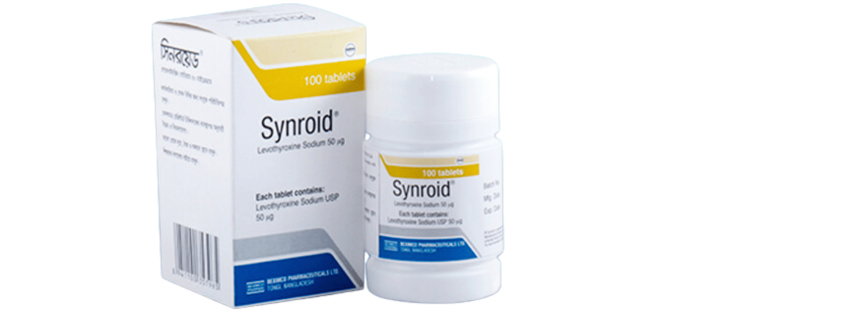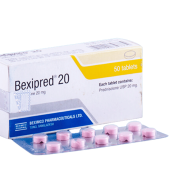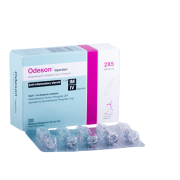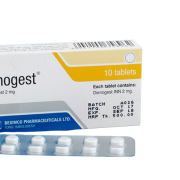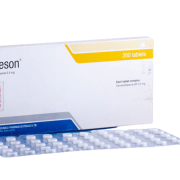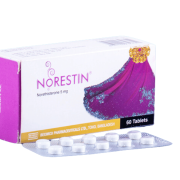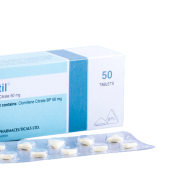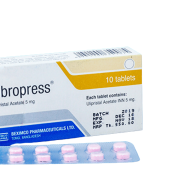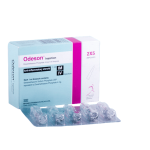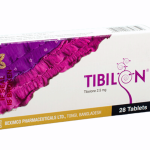Synroid
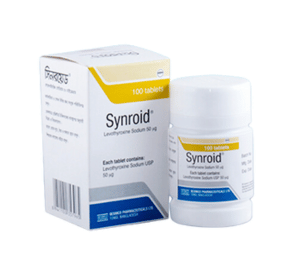
Generic Name: Levothyroxine Sodium 50 mcg
Dosage Form: Tablet
TG Name: Hormones & Steroid
1. What Synroid® is and what it is used for?
Synroid® tablet is the preparation of Levothyroxine Sodium which belongs to a group of medicines called thyroid hormones, which work by replacing the body’s low levels of thyroxine. Thyroxine is a hormone produced by the thyroid gland. Levothyroxine is used to replace thyroxine in people whose thyroid gland does not work properly. You will usually need to take this medicine for the rest of your life and must not stop taking it, or change the dose, without speaking to your doctor first.
Levothyroxine tablets are used to treat hypothyroidism, a disease in which the thyroid gland is underactive and does not produce enough thyroxine, a hormone, which is important for controlling your metabolism. Symptoms of hypothyroidism include tiredness, muscle weakness, cramps, feeling the cold, a slow heart rate, dry and flaky skin, hair loss and weight gain.
Levothyroxine tablets are also used to treat children born with hypothyroidism (congenital), those who develop hypothyroidism in the first year of life (neonatal) and children who have hypothyroidism as part of juvenile myxedema, a condition in which the amount of thyroxine produced by the body is low.
2. Before you take Synroid®
Please tell your doctor if you are allergic to levothyroxine sodium or any of the other ingredients of the formulation. Do not forget to mention if you have Thyrotoxicosis, Acute Myocardial Infarction (AMI), Untreated adrenal insufficiency.
Take special care with Synroid®
Check with your doctor before taking this medicine if:
Levothyroxine Sodium should be used with caution in patients with angina, coronary artery disease and hypertension, galactose intolerance. Care is required when Levothyroxine Sodium is administered to patients with known history of epilepsy.
Thyroid replacement therapy may cause an increase in dosage requirements of insulin or other antidiabetic therapy.
Parents of children receiving thyroid agent should be advised that partial loss of hair may occur during the first few months of therapy, but this effect is usually transient and subsequent re-growth usually occurs.
In women, long-term levothyroxine sodium therapy has been associated with decreased bone mineral density, Therefore, to minimize the risk of osteoporosis, dosage of Levothyroxine Sodium should be titrated to the lowest possible effective level.
Taking other medicines
Anticoagulants, Antidiabetics, Beta Blockers, Anti-convulsants: e.g. carbamazepine, primidone and phenytoin, Antiarrhythmics: Amiodarone, Antidepressant: amitriptyline, imipramine. Sympathomimetics: Adrenaline, Cardiac glycosides: Digoxin, Sex Hormones: e.g. Oestrogen, oestrogen containing product, oral contraceptives
Pregnancy and breast-feeding
Pregnancy – Category A. Pregnancy may increase Levothyroxine requirements.
Nursing Mother – Although thyroid hormones are excreted only minimally in human milk, caution should be exercised when it is administered to a nursing woman. However, adequate replacement doses of Levothyroxine are generally needed to maintain normal lactation.
3. How to take Synroid®?
Always use Levothyroxine exactly as your doctor has told you. You should check with your doctor or pharmacist if you are not sure.
How much to take?
Dosing must be individualized and adjustments made based on periodic assessment of the patients clinical response and laboratory parameters.
a) Pediatric Dosage
| Table: Levothyroxine Sodium Dosing Guidelines for Pediatric Hypothyroidism | ||
| AGE | Daily Dose Per Kg Body Weight | |
| 0-3 months | 10-15 mcg/kg/day | |
| 3-6 months | 8-10 mcg/kg/day | |
| 6-12 months | 6-8 mcg/kg/day | |
| 1-5 years | 5-6 mcg/kg/day | |
| 6-12 years | 4-5 mcg/kg/day | |
| > 12 years but growth and puberty incomplete | 2-3 mcg/kg/day | |
| Growth and puberty complete | 1.7 mcg/kg/day | |
b) Adult Dosage
Initial starting dose: 25-50 mcg/day, with gradual increments in dose at 6-8 week intervals, as needed. The dose is generally adjusted in 12.5-25 mcg increments until the patient with primary hypothyroidism is clinically euthyroid and the serum TSH has normalized. In patients with severe hypothyroidism: 12.5-25 mcg/day with gradual increment of 25 mcg/ day every 2-4 weeks. In patients with secondary (pituitary) or tertiary (hypothalamic) hypothyroidism: The dose should be titrated until the patient is clinically euthyroid and the serum free- T4 level is restored to the upper half of the normal range. For patients older than 50 years or for patients under 50 years of age with underlying cardiac disease: 1.7 mcg/kg/day
If you take more Synroid® than you should
If you have too much of this medicine, talk to your doctor straight away.
If you forget to take Synroid®
If you forget to take a dose, take it as soon as you remember it. However, if it is nearly time for the next dose, skip the missed dose. Do not take a double dose to make up for a forgotten dose.
If you stop taking Synroid®
Do not stop taking this medicine without talking to your doctor. You should not stop taking Synroid® just because you feel better. This is because the problem may come back or get worse again.
If you have any further questions on the use of this product, ask your doctor or pharmacist.
4. Possible side effects
Like all medicines, Synroid® can cause side effects, although not everybody gets them
Fatigue, increased appetite, weight loss, heat intolerance, fever, excessive sweating; headache, hyperactivity, nervousness, anxiety, irritability, insomnia. muscle weakness. palpitations, tachycardia, arrhythmias, diarrhea, vomiting, abdominal cramps.
Like all medicines, Synroid® can cause side effects, although not everybody gets them.
Too high a dose may lead to symptoms of hyperthyroidism like tachycardia, nervousness, tremor, headache, flushing, perspiration, loss of weight. If necessary, treatment can be interrupted for a few days and then be resumed at a lower dosage.
Tell your doctor if any of the side effects gets serious or lasts longer than a few days, or if you notice any side effects not listed in this leaflet.
5. How to store Synroid®?
Store in a cool and dry place. Protect from light.
Keep out of reach of children.

